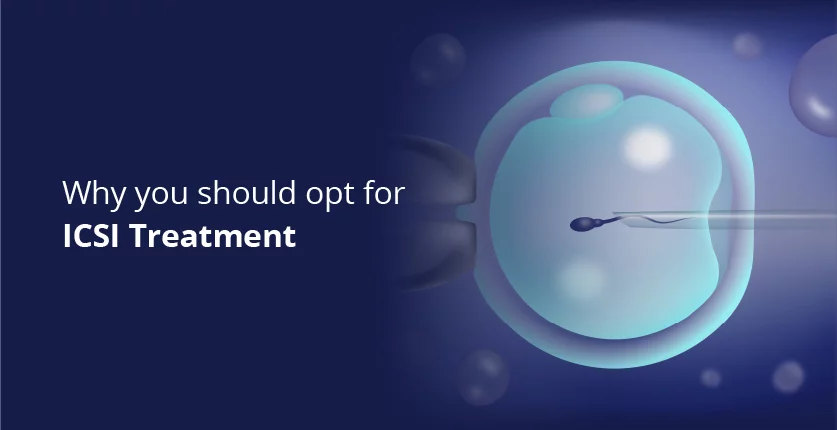


Intracytoplasmic sperm injection (ICSI) is the process where sperm is injected directly into an egg to fertilize it in an IVF procedure. In natural conception and traditional IVF, sperm swim to the egg, attach to the egg’s shell, and push through the shell to get inside the egg. Once inside, the sperm’s DNA mixes with the female’s DNA to create an embryo. This is the process of fertilization. In some cases, the sperm cannot penetrate the egg’s shell so ICSI is required to help the sperm get into the egg.
ICSI is suggested if the male accomplice (partner) has:
• Low sperm count.
• If the sperm have an abnormal shape (morphology), they cannot fertilize an egg.
• Sperm that is taken directly from the testicles.
• Previous traditional IVF that yielded a low fertilization rate.
ICSI can likewise be utilized to treat unexplained infertility. In couples with unexplained infertility, the clarification may lie in the sperm’s inability to fertilize an egg. ICSI is additionally used when testing for single gene diseases is planned (PGD).
The procedures that you will experience with ICSI are precisely the same as IVF. The only difference is that upon the arrival of the egg retrieval, our exceedingly prepared embryologist will infuse/inject a single sperm into each mature egg. In situations where a man has significantly abnormal sperm parameters, prior to beginning treatment we propose freezing/solidifying a sperm sample for possible future use. At times, the sperm quality can decay significantly over a short time, so having a backup frozen sample stored in the lab will ensure that an adequate specimen is accessible on the day of egg retrieval.
ICSI is successful in fertilizing 60%-80% of egg.